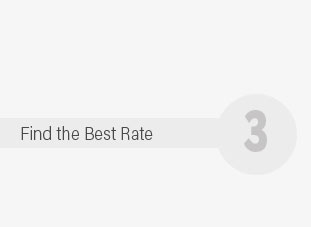 |
 |
 |
|---|
 |
 |
 |
 |
|---|
 |
 |
 |
 |
 |
 |
|---|

Understanding Good Auto Insurance Rates: An Informative ExplorationAuto insurance, a necessary financial safeguard, often presents a labyrinth of choices and price points, leaving many to ponder what truly constitutes a 'good' rate. As we delve into this topic, it is crucial to recognize that the definition of a good rate is not universally fixed, but rather varies according to individual circumstances and priorities. Firstly, understanding the components that influence insurance premiums is essential. Factors such as driving history, vehicle type, location, and credit score play significant roles. Insurers assess these elements to gauge risk, and subsequently, to set rates. Therefore, a driver with a pristine record and a modest vehicle might enjoy lower premiums compared to someone with a more turbulent driving history or a high-end car. On the flip side, it is vital to weigh the benefits of different coverage options. While a lower premium is undeniably attractive, it is imperative to ensure that the coverage suffices for your needs. Comprehensive and collision coverage, though more expensive, offer peace of mind by covering a wider array of potential incidents, from theft to natural disasters. The adage 'you get what you pay for' often holds true in the realm of insurance. Moreover, comparing rates across various providers can unearth surprising discrepancies. Utilizing online tools or working with a broker can simplify this process, allowing for a more informed decision. It is not uncommon for rates to vary significantly between insurers for the same level of coverage, underscoring the importance of thorough comparison shopping. Additionally, don't overlook the potential for discounts. Many insurers offer reduced rates for bundling policies, maintaining a safe driving record, or even completing defensive driving courses. These discounts can substantially lower overall costs, transforming a seemingly expensive policy into a more manageable one. Another layer to consider is the insurer's reputation and customer service quality. A company that excels in these areas may justify slightly higher rates through the added value of a smooth claims process and reliable customer support. Ultimately, a good auto insurance rate is one that strikes a harmonious balance between cost, coverage, and service, tailored to the individual's specific needs and financial situation.
In conclusion, navigating the auto insurance landscape requires a strategic approach, blending an understanding of personal needs with an awareness of market offerings. By meticulously evaluating factors such as coverage adequacy, cost, and provider reliability, one can secure a rate that not only fits their budget but also offers essential protection, ultimately leading to a more secure and confident driving experience. https://www.bankrate.com/insurance/car/utah/
The average annual cost of auto insurance in Utah is $778 for state-mandated minimum coverage and $2,144 for full coverage, which includes optional collision ... https://www.nationwide.com/lc/resources/auto-insurance/articles/best-car-insurance-prices
1. Shop around - 2. Adjust your insurance policy - 3. Discount your way to the best auto insurance price - 4. Combine insurance policies - 5. Maintain a good credit ... https://www.autoinsurance.com/states/utah/cost/
By Credit Score ; Poor, $2,150 ; Average, $1,376 ; Good, $1,205 ; Excellent, $997 ...
|
|---|